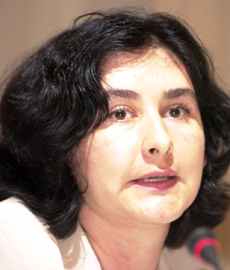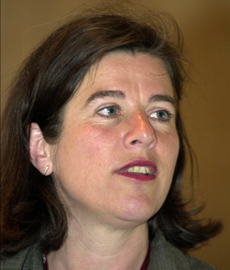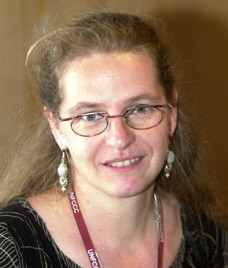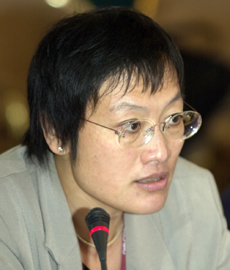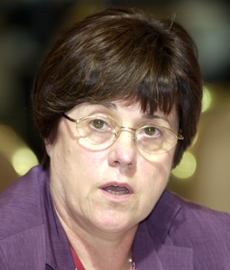|
Dennis Tirpak, UNFCCC, said e-learning training for expert reviewers will result in higher quality reviews and better technical inventories. He highlighted that e-learning is an efficient and convenient way to improve skills.
Ambassador Beat Nobs, Swiss Agency for the Environment, Forests and Landscape, stressed the importance of capacity building, transparency, and broad participation in the review process, and lauded the joint efforts of the UNFCCC and the UN Conference on Trade and Development in developing a state-of-the-art e-learning tool.
Clemencia Licona Manzur, UNFCCC, discussed the results of the Geneva greenhouse gas inventories pilot training course. She highlighted that e-learning allows the low-cost dissemination of information around the world and permits trainees to study at their own pace.
Miguel Rapatan, LearnSD, explained that e-learning is a form of distance learning where training or instruction is delivered via the internet and other electronic resources. He emphasized that e-learning is an interactive experience that enables more people to be trained at a lower cost.
Claire Breidenich, UNFCCC, provided an overview of the e-learning module on the UNFCCC review process and general IPCC inventory guidance. She explained that the module is interactive and focuses on cross-cutting issues, but sector-specific modules may be developed in the future.
Gao Pronove, Earth Council, noted that the learning management system allows the instructor to monitor the attendance and participation of each learner. He stated that LearnSD offers many tools to enhance, monitor and support the learning process.
Clemencia Licona Manzur outlined a prototype of an e-learning skills-building course on improving communication in the Expert Review Teams (ERTs), developed jointly by the UNFCCC and IGES. She explained that the course aims to enhance the competence of experts and lead reviewers and to develop a more efficient and effective review process. Davina Boyd, IGES, said the prototype course is interactive, has a dynamic interface, and meets the needs of both novice and more experienced e-learners.
Andrea Déri, IGES, explained that the IGES capacity building programme bridges policy research with policy making, using e-learning as the primary means of implementation.
Roberto Acosta, UNFCCC, provided an overview of the proposed programme for training review experts for the period 2003-2006. He explained that the programme aims to: provide basic technical knowledge and strengthen complementary skills for ERT members; improve the effectiveness, efficiency and consistency of review activities; and contribute to the quality of national greenhouse gas inventories. Highlighting the expected benefits and financial implications of the proposed training programme, he thanked the Government of Switzerland for its financial contribution and urged other Parties to support the programme.
|



